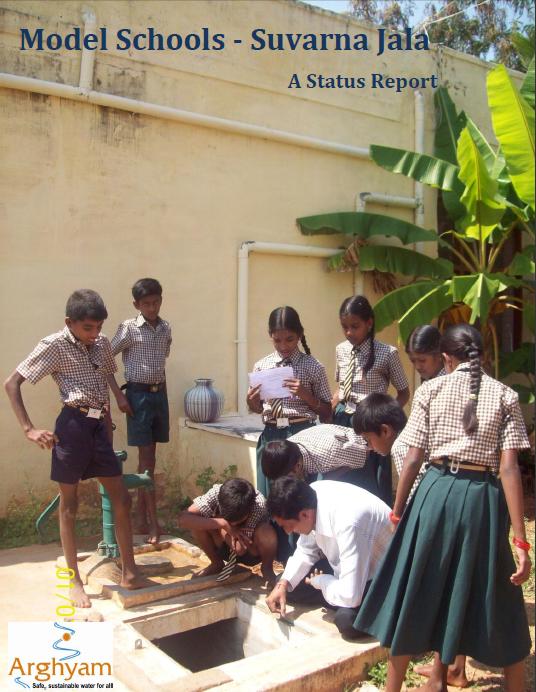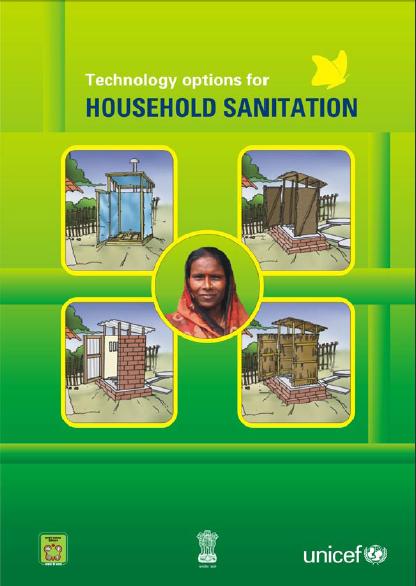Storage and Supply
Review of current practices in determining user charges & incorporation of economic principles of pricing of urban water supply
Posted on 19 Dec, 2010 07:21 PMThis paper is an outcome of The Energy Research Institute's (TERI’s) study for the Ministry of Urban Development (MoUD) under the Ministry’s Centre of Excellence (COE) to “Review the existing guidelines of determination of user charges for water and sanitation services and to incorporate economic principles of pricing in urban water supply sector in India”.
Water management across space and time in India – A working paper by the University of Bonn
Posted on 17 Dec, 2010 10:09 PMThis working paper by the University of Bonn attempts to give a spatial and temporal overview of water management in India. It traces how people and the successive regimes made choices across space and time from a wide range of water control and distribution technologies. The paper divides the water management in India into four periods –
- the traditional system of water management before colonial times;
- response from the colonial rulers to manage the complex socio-ecological system;
- large scale surface water development after independence; and
- finally, the small-scale community and market-led revolution.
The wealth of waste: The economics of wastewater use in agriculture - A report by FAO
Posted on 17 Dec, 2010 07:36 PM This report by the Food and Agriculture Organisation (FAO) deals with the economics of wastewater use in agriculture. It presents an economic framework for the assessment of the use of reclaimed water in agriculture, as part of a comprehensive planning process in water resource allocation strategies to provide for a more economically efficient and sustainable water utilization.
This report by the Food and Agriculture Organisation (FAO) deals with the economics of wastewater use in agriculture. It presents an economic framework for the assessment of the use of reclaimed water in agriculture, as part of a comprehensive planning process in water resource allocation strategies to provide for a more economically efficient and sustainable water utilization.
Water footprint assessments of dehydrated onion products of Jain Irrigation Systems Ltd – A report by IFC
Posted on 17 Dec, 2010 07:05 PMThis work on water footprint assessments represents a pioneering effort on documenting the water consumption in Jain Irrigation Systems Limited’s (JISL) production of dehydrated onions and of micro-irrigation systems. It also assesses the sustainability of this water consumption and formulate response strategies.
Report of Working Group to advise Water Quality Assessment Authority on the minimum flows in the rivers
Posted on 10 Dec, 2010 10:16 PMThis report of the Working Group to advise Water Quality Assessment Authority (WQAA) on the minimum flows in the rivers outlines the principles behind environmental flow assessments, provides a description of methods that have been used to assist with such assessments, and highlights the features that will increase the chance of successful implementation of environmental flows.
Ecological Sanitation locations in India
Posted on 01 Dec, 2010 04:55 PMEcological Sanitation is a new approaching sanitation where there is minimal water use and where human waste can be used as fertilizer. It is a truly sustainable approach.
Droplets: e-newsletter from Everything About Water - November 2010
Posted on 26 Nov, 2010 02:02 PMArticle and Image Courtesy: Everything About Water
The November edition of Droplets e-newsletter published by the Everything About Water had the following highlights:
- India: The country facing a water deficit of 50% by 2030
- India: New national water policy in pipeline
- Rajasthan: Rs. 149.59 crore plant to clean river waters
- Madhya Pradesh: State to sign 6 MoUs for water projects
- Tamil Nadu: Habitat for Humanity brings clean drinking water
- Mumbai: MMRDA plans Rs. 1200 crore water conveyance system plan
News roundup (16-22 November 2010)
Posted on 24 Nov, 2010 10:07 PMSanitation/Wastewater
- India tops the list of nations lacking toilets
- India hunts for a Rural Toilet Design, 1000 Euros up for grabs
- 82% of rural India deprived of three basic necessities of life — tapped drinking water, electricity connection and sanitation
- There are 700 million cell phone connections in India, but only half this number of Indians have access to private toilets, says a UN study
Model Schools: Suvarna Jala - A status report by Arghyam (2009)
Posted on 15 Nov, 2010 10:46 PM This is a status report of Arghyam's sponsored efforts to develop and showcase community managed water and sanitation systems in 17 schools of 7 districts of Karnataka.
This is a status report of Arghyam's sponsored efforts to develop and showcase community managed water and sanitation systems in 17 schools of 7 districts of Karnataka.
The Government of Karnataka through its Suvarna Jala Yojana aims at providing drinking water in 23,683 rural government schools. This was funded to the tune of Rs 7735 lakh. Arghyam conducted a survey of this scheme in 2007 in 7 districts to ascertain the status of the scheme. The survey found out that out of the 1269 rainwater harvesting structures completed by November 2006 only 140 structures were functional.
Technology options for household sanitation - A report by the Ministry of Rural Development and UNICEF
Posted on 15 Nov, 2010 10:14 PM As part of the Total Sanitation Campaign (TSC), the Ministry of Rural Development under the Rajiv Gandhi National Drinking Water Mission and UNICEF have brought out a compedium that details the various sanitation technologies available to above and below poverty line households .
As part of the Total Sanitation Campaign (TSC), the Ministry of Rural Development under the Rajiv Gandhi National Drinking Water Mission and UNICEF have brought out a compedium that details the various sanitation technologies available to above and below poverty line households .
The authors have divided the report into three subjects - the first being the need for household sanitation and the extent of the problem in rural India. The second section looks at sanitation technology in general with a focus on rural areas and technologies for different conditions. The third part deals with operation and maintenance of such technologies and includes a chapter on components of a toilet.





